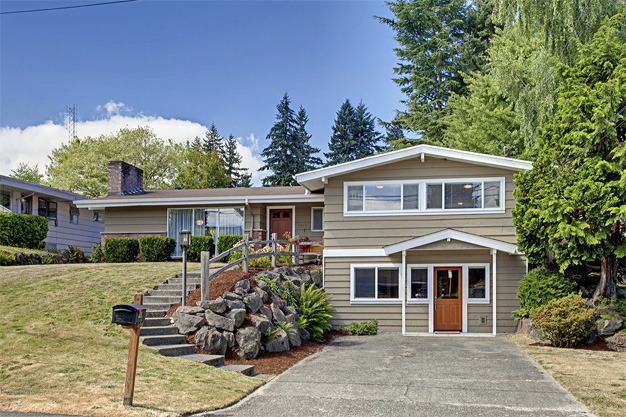The Fred Hutchinson Cancer Research Center, commonly known as the “Hutch,” is named for the Seattle native and former major league baseball player who died of lung cancer in 1964.
Fred Hutchinson was known throughout the baseball community as “Hutch.” He attended the University of Washington, where he was a 1939 initiate of Alpha Sigma Phi Fraternity.
After 16 years either playing for or managing the Detroit Tigers, he was replaced and came back to Seattle.
Hutchinson lived on Mercer Island in a new home in 1959, which he and his wife, Patsy, paid $36,000 for. The house still stands. The Hutchinsons lived there for a very brief time before moving to Ohio, when Hutchinson became the manager of the Cincinnati Reds.
It’s an interesting symmetry that his Mercer Island home recently changed hands, from a research coordinator at the FHCRC, to a research scientist who works at the UW, which is one of FHCRC’s research partners.
Emily Wion lived in the home for nine years and sold it just before Thanksgiving to doctor Janine Bryan. Wion said the neighbors told her the house was originally owned by Fred Hutchinson. She did some research on her own.
“Sure enough, there was his name on the original title,” Wion said.
Wion has worked at the FHCRC for the past three and a half years, but she also worked there in the ’90s.
Wion said Fred Hutchinson bought the home in the Mercerwood neighborhood brand new — it was the model home for the development.
“He lived here when he (came back and) managed the Rainiers,” she said.
Wion and her family did quite a bit of remodeling to bring the home up-to-date, including gutting the kitchen. But, with a growing family, they needed more space, so they sold the house to move to a larger home on the south end of the Island.
One day this fall, meandering around looking at open houses, Bryan stepped into the home. The agent at the open house told her the home’s back story. Being a scientist who studies the Human Papilloma virus (HPV), which causes cervical cancer, the history of the home intrigued her.
Bryan is a research project manager and has been working at UW’s microbiology department for about a year. She had to sell her house in Pennsylvania, where she worked for Merck Research Laboratories developing and testing the efficacy of the HPV vaccine — Gardasil — before she could buy a home here.
But Bryan grew up in Edmonds and attended UW as an undergraduate student.
“It doesn’t have a view, but it works well for me,” Bryan said. “Emily did a good job of remodeling.”
Bryan said HPV causes cervical cancer — the reason women get pap smears. The primary target for Gardasil is adolescent or young adults, as the virus is acquired by sexual contact. Bryan said this is one of the few preventable cancers because it is a pathogen and can be guarded against with the vaccine.
“It’s (the house) really in nice shape,” Bryan said. “For our small family it’s perfect, and when you’re a scientist you don’t spend a lot of time at home.”
Hutchinson was a right-handed pitcher, entering organized baseball ranks in 1938 with the unaffiliated Seattle Rainiers of the AA Pacific Coast League.
He’d become a sensation by the time he was 19, winning a league-best 25 games and that season’s minor league player of the year award by The Sporting News.
His brother, Dr. William Hutchinson, created the Fred Hutchinson Cancer Research Center as a division of the Pacific Northwest Research Foundation after his death. The FHCRC became independent in 1972.
“I just thought it was fun, that I was in his house,” Wion said. “It was too much of a coincidence to ignore.”



